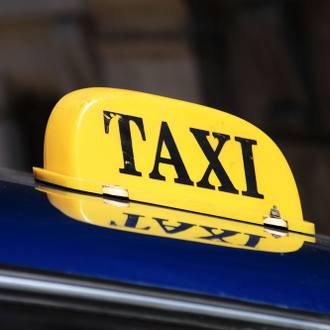What rights do passengers have when travelling in a taxi?
Index
Taxis – as a form of public transport – operate under the auspices of the transportation department in each state and territory.

Therefore some of the finer details of passenger rights may vary from state to state, however, in the main passengers across Australia will have a similar set of rights when travelling in a taxi.
A licensed and accredited driver
Taxi drivers at all times must hold a current Driver accreditation and a full and local Driver Licence. Taxi drivers operating in Metropolitan areas must usually display a driver identity card, issued by the state taxi authority, which shows the driver’s accreditation number, accreditation expiry date and photograph of the driver.
Their choice of a preferred route
A passenger can specify the route to be taken to reach the stated destination. If a route is not specified, the taxi driver is required to take the most direct, practicable route available. The driver may use a street directory to establish the appropriate route.
Access to view the metered fare
When a passenger starts a taxi ride, the meter must be turned on at the correct tariff rate. It is not permitted to operate a taxi with a defective meter. The meter must be in clear view and show the fare to be paid. Tolls, where applicable, may be an addition to the metered fare.
A clean and roadworthy cab
It is a basic right of the passenger to expect to travel in a clean, safe, tidy and roadworthy cab.
Air conditioning
Taxis are required to have a properly working air conditioner fitted. A passenger has the right to have air conditioning in the taxi turned on or off. However, taxi drivers are not expected to meet unreasonable requests which may impair their ability to provide a safe ride, such as setting air conditioning to levels which create driver discomfort.
No music or conversation
A passenger has the right to request a ride to their expected comfort level. This includes the right to have a music system or radio turned on, off or down. Passengers may also advise the driver if they wish to complete the taxi ride without conversation.
Assistance animals
Assistance animals for people with a vision or hearing impairment must be accepted by the taxi driver for carriage within the cab.
Refuse multiple hiring
Passengers who have hired a taxi are entitled to exclusive use of the taxi for the course of their trip. If a passenger does consent to a multiple hiring (sharing the taxi with other people), the first and subsequent hirers must be travelling in the same general direction. Note: This situation does not apply at Canberra airport where multiple hirings are in fact enforced.
Use an EFTPOS facility where one is available
Taxi drivers must provide customers with access to EFTPOS facilities where these facilities are installed and online.
Use valid credit or debit cards as displayed in the cab
A driver must provide passengers with the ability to pay by credit or debit cards which are displayed in the taxi.
A receipt or tax invoice
On request, the driver must provide a receipt that is legible and contains the requisite information. The driver is obliged to explain to the customer how the fare was calculated if requested at the end of the journey. Tolls applicable must usually be shown separately.
If you need further information about your rights as a taxi passenger, contact the Department of Transportation in your state or territory. In each state and territory an industry body or taxi directorate will also have self-governing oversight of the local taxi industry and can be contacted for information and assistance.
